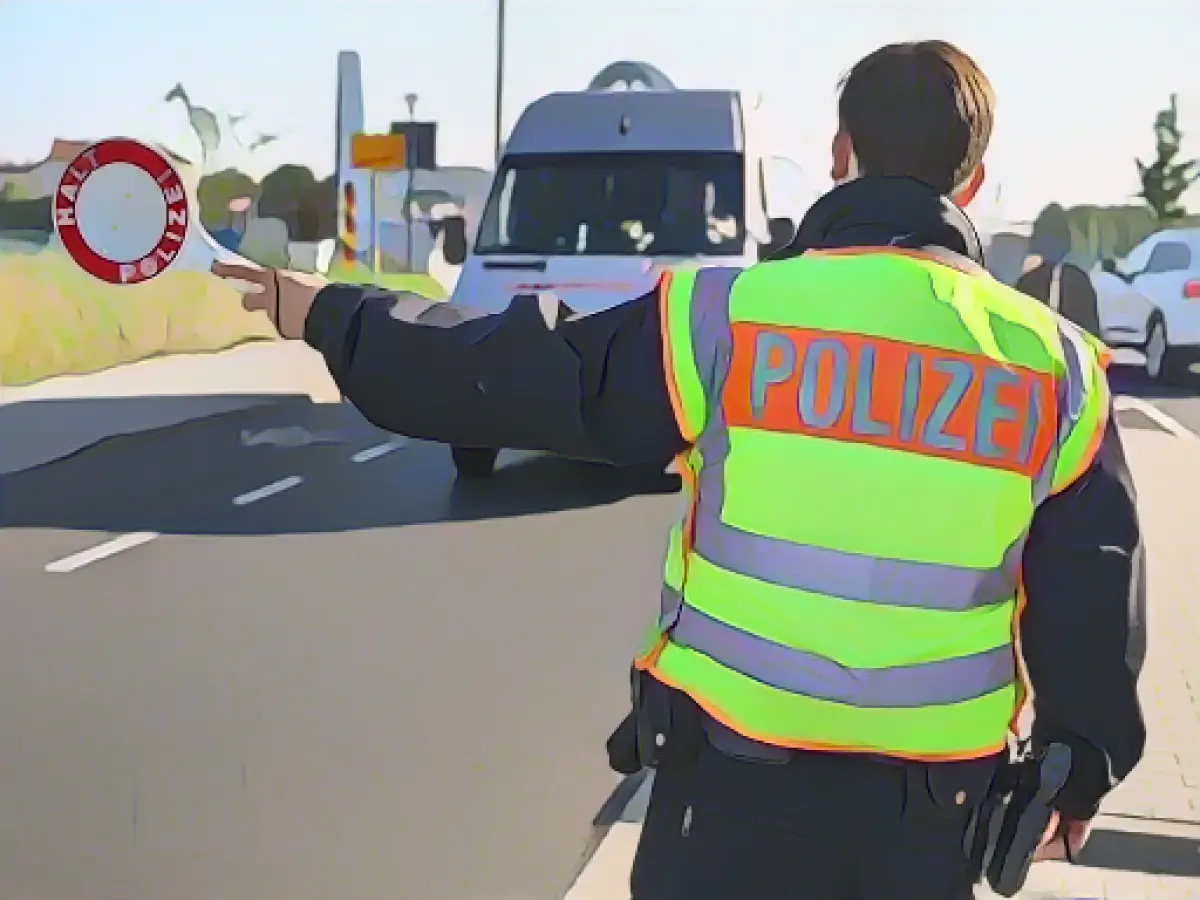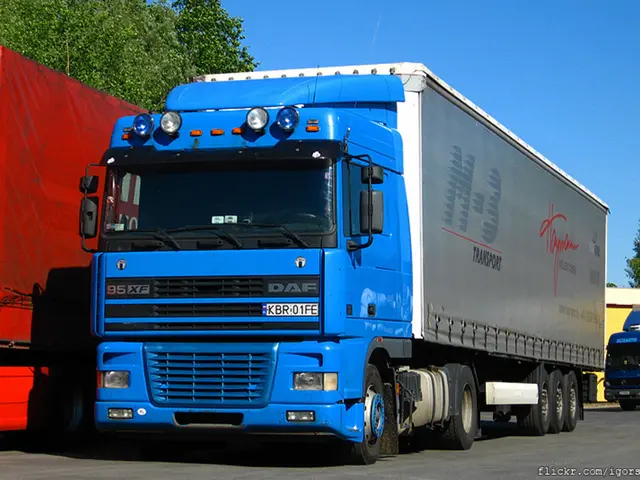Border Control Crackdown Yields Criminal Arrests
With the reintroduced border controls to curb illegal immigration, the German federal police have been making waves by apprehending criminals left and right. Since the crackdown on Friday, they've warranted eight arrests along an 80-kilometer stretch of the Poland border in Mecklenburg-Western Pomerania, according to a representative from the federal police authority.
Take the case of the 48-year-old Ukrainian truck driver who was wanted by the Ansbach pubic prosecutor's office in Bavaria for theft. Caught at the former Linken border crossing, he was slapped with a fine of 2,300 euros and additional 82.50 euros in judicial costs, plus a 46-day substitute prison sentence. The man paid up, squaring his debts to the German authorities with no further drama.
Similarly, a 29-year-old Syrian was apprehended in Pomellen. Wanted by the public prosecutor's office in Stade, Lower Saxony, for inflicting bodily harm, he paid up a hefty fine of 2440 euros, along with a leftover 10 euro fine and 104 euros in legal costs. By forking out the required sums, he successfully avoided 61 days of substitute imprisonment.
Even a 37-year-old German man fell to the authorities' net in Pomellen. He was wanted for fraud by the Berlin public prosecutor's office. The German man agreed to pay a fine of 750 euros, a remnant 10.40 euro fine, and 94.50 euros in judicial costs. Otherwise, he would've faced 50 days in the slammer.
Such incidents have sparked suspicion of a rise in international criminal activities along the newly patrolled border. The cross-border cooperation between law enforcement agencies could potentially have global repercussions for these lawbreakers.
Criminal Catch Up
Reintroducing border controls can not only enhance security measures but also improve data sharing and coordination among international enforcement agencies. This can lead to the detection and prevention of transnational crimes such as human trafficking, drug smuggling, and terrorism. However, the implementation of tighter controls can also produce negative impacts.
Drawbacks
Administrative Delays
The reintroduction of internal border controls may lead to additional administrative requirements and travel delays, potentially hindering legitimate trade and personal travel.
Resource Strain
Furthermore, increasing border controls could place a strain on resources, including personnel and technology, potentially diverting attention from other critical law enforcement tasks and international cooperation efforts.
Misuse of Controls
Unfortunately, if not implemented carefully, border controls can be misused to unfairly target specific groups or individuals, potentially eroding trust in law enforcement and international cooperation.
International Cooperation
While the reintroduction of border controls can lead to enhanced cooperation between cross-border enforcement agencies, it can also present challenges.
Enhanced Coordination
The crackdown necessitates closer collaboration between international partners, paving the way for stronger global security efforts. For instance, INTERPOL's annual conference brings together enforcement officials from 150 countries to share knowledge and best practices in combating transnational crime.
Intelligence Sharing
The use of advanced technologies and data sharing mechanisms can facilitate information exchange between countries, empowering agencies to identify and dismantle criminal networks more effectively.
Economic Pressure
Economic leverage can be used to sway governments into improving border security and cooperating more compassionately in law enforcement efforts, as seen in the U.S.-Mexico context.
In conclusion, while reintroducing border controls can strengthen security measures and foster cooperation between enforcement agencies worldwide, it can also stir up administrative delays, resource strain, and potential instances of misuse. Careful implementation and collaboration are vital to maximize positive outcomes and minimize negative impacts.








